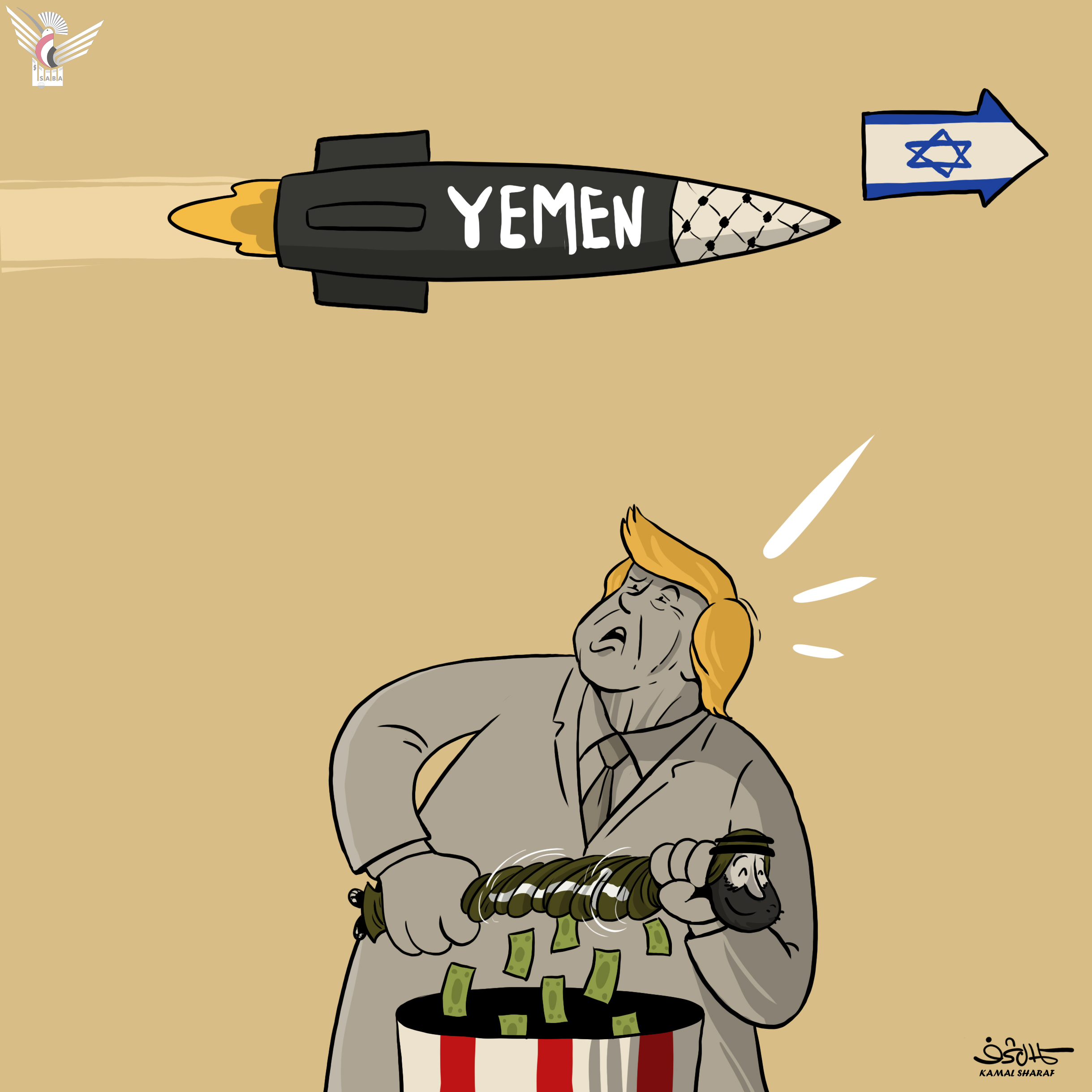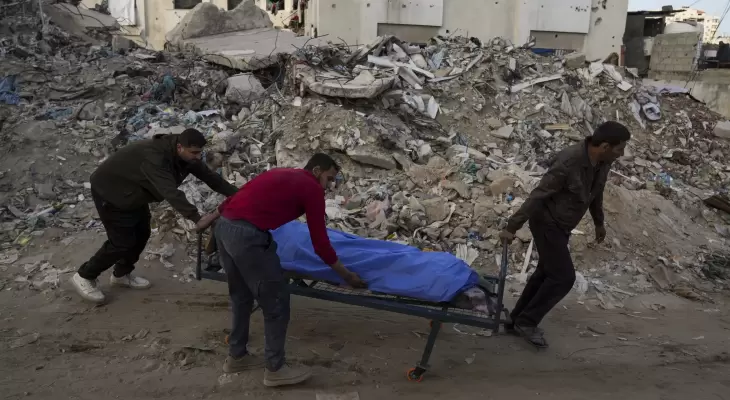Gaza – Saba:
Palestinian, Arab, and international organizations have launched a broad campaign to oppose the US plan to manage aid distribution in the Gaza Strip. They consider it a "systematic starvation management" aimed at displacing residents from the north of the Strip to the south and legitimizing the militarization of humanitarian aid.
This came during an online symposium organized by the American Communities Network in Washington, Hashd Committee for the Defense of the Palestinian People, and the Center for Political and Development Studies, held Wednesday evening.
The symposium was titled "Dimensions and Implications of the US Aid Plan for Gaza," with the participation of intellectual and political elites from within and outside the country.
Adnan Abu Hasna, media advisor to UNRWA, revealed repeated Israeli attempts to replace the international organization with local bodies, including "mukhtars" and alternative sectors. He emphasized the failure of these efforts and the UN's categorical rejection of any plan that deviates from its principles.
Abu Hasna explained that the United States submitted a 30-page proposal three months ago, which includes the establishment of an alternative organization called the "Gaza Foundation," which would oversee the distribution of aid according to strict security requirements, including a security check for each beneficiary.
He explained that the plan stipulates that food be distributed through four points in the southern Gaza Strip, and that each meal provided is limited to 1,400 calories, in complete disregard for broader humanitarian needs.
He pointed out that the plan is being managed by security companies, without providing protection for residents forced to travel in harsh conditions to obtain food. He warned that it legitimizes displacement toward Rafah, which cannot accommodate two million Palestinians.
For his part, Amjad Shawa, head of the Palestinian Non-Governmental Organizations Network, described the plan as a recycled version of an old scheme proposed last November under the title "Humanitarian Bubbles," considering it a tool for exploiting aid for military and security purposes, under the direct supervision of the enemy army.
Al-Shawa explained that the plan promotes a digital system based on facial recognition and directing residents toward Rafah. It is being implemented through international organizations and American companies.
In its first phase, it targets half of the Gaza Strip's population, exposing the other half to famine and direct threat.
Al-Shawa criticized the plan's limited provision of calories, without providing tents, medical supplies, or infrastructure. He emphasized that the volume of aid does not exceed 100 trucks per day, compared to the 600 trucks that entered during the truce, further complicating the humanitarian crisis.
In the same context, Salah Abdel-Ati, head of Hashd Authority, considered the plan a distortion of the principle of aid provision and a deliberate transformation of a political issue into a security-driven humanitarian crisis, with the aim of entrenching an uninhabitable environment in Gaza and pushing residents toward forced displacement.
Abdel-Ati stated that the plan constitutes a "war crime" that contradicts international law, the Rome Statute, and the principles of the International Court of Justice. He warned that the involvement of private security companies in relief management constitutes a circumvention of the role of the United Nations and establishes a dangerous international approach in conflict zones.
He pointed out that the United States, through its coordination with Israel, is contributing to what he described as a "genocidal crime," calling for the formation of an international humanitarian coalition to enforce the opening of urgent relief corridors and prevent the implementation of the "starvation engineering" plan.
For her part, American university professor Rabab Abdul Hadi asserted that Washington is seeking to transform the Palestinian issue from a political conflict into a humanitarian crisis based on "pity," with the aim of whitewashing Israeli crimes and obscuring the essence of the ongoing catastrophe in Gaza.
Abdulhadi indicated that the plan contributes to obscuring international awareness by portraying the Palestinians as mere victims, rather than as a people with political and national rights. She noted that the "food for peace" policy has historically been used as a tool of hegemony and foreign intervention.
She highlighted the escalating student and popular movement in the United States against American support for Israel, despite the sanctions and loss of scholarships suffered by participants. She emphasized that this struggle carries a powerful voice against the distortion of global awareness.
The campaign concluded by calling on all international parties to uphold their moral and legal responsibilities, take urgent action to stop the war, open the crossings, ensure the flow of aid without security conditions, and reject all forms of militarization of humanitarian action or its exploitation in displacement and subjugation projects.

| more of (International) |




